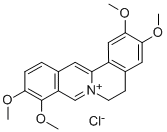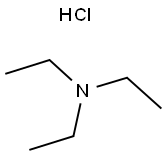Betahistine dihydrochloride , 99% , 5579-84-0
Synonym(s):
Betahistine dihydrochloride;Methyl[2-(2-pyridyl)ethyl]amine dihydrochloride
CAS NO.:5579-84-0
Empirical Formula: C8H14Cl2N2
Molecular Weight: 209.12
MDL number: MFCD00012813
EINECS: 226-966-5
| Pack Size | Price | Stock | Quantity |
| 1g | RMB67.20 | In Stock |
|
| 5G | RMB196.80 | In Stock |
|
| 10G | RMB385.60 | In Stock |
|
| 25G | RMB738.40 | In Stock |
|
| 100G | RMB2342.40 | In Stock |
|
| others | Enquire |
PRODUCT Properties
| Melting point: | 150-154 °C |
| storage temp. | 2-8°C |
| solubility | Very soluble in water, soluble in ethanol (96 per cent), practically insoluble in 2propanol. |
| form | powder |
| color | Pale Yellow |
| Stability: | Hygroscopic |
| InChI | InChI=1S/C8H12N2.2ClH/c1-9-7-5-8-4-2-3-6-10-8;;/h2-4,6,9H,5,7H2,1H3;2*1H |
| InChIKey | XVDFMHARQUBJRE-UHFFFAOYSA-N |
| SMILES | C1(CCNC)=NC=CC=C1.Cl.Cl |
| CAS DataBase Reference | 5579-84-0(CAS DataBase Reference) |
Description and Uses
Betahistine dihydrochloride (BH.2HCl) is an orally active histamine analog which has been used to control vertigo, lack of hearing and tinnitus related to Ménière’s disease. The mechanism of BH.2HCl is to reduce the pressure of the membranous labyrinth that results in enhancement of the microvasculature circulation and improves the signs of Ménière’s disease. Peroral administration undergoes extensive first-pass metabolism and gastric irritation in patients with peptic ulcer. In treatment of vertigo, a uniform and constant supply of drug is required in order to maintain steady-state concentration of the drug in the body. Unfortunately, BH.2HCl possesses a short half-life of about 3–4 h and requires frequent administration of the drug,12–15 thereby making it an ideal candidate for controlled release preparations.
Betahistine is belongs to a group of medications used to treat vertigo associated with Ménière's disease. Vertigo is a condition that causes sufferers to have a sensation of rotation or movement of themselves or their surroundings. Ménière's disease is a disorder of the inner ear that causes vertigo in addition to symptoms such as ringing in the ears, headache, and loss of hearing.
Betahistine is used to reduce the number of episodes of vertigo associated with Ménière's disease. It is believed to work by decreasing the pressure in the ear. This pressure is believed to contribute to the sense of dizziness, nausea, and ringing in the ears and hearing loss that people with Ménière's disease experience.
Safety
| Symbol(GHS) |  GHS07 |
| Signal word | Warning |
| Hazard statements | H413-H319-H315-H335 |
| Precautionary statements | P264-P280-P305+P351+P338-P337+P313P-P264-P280-P302+P352-P321-P332+P313-P362 |
| Safety Statements | 24/25 |
| WGK Germany | 3 |
| RTECS | UT2969000 |
| HS Code | 29333990 |




